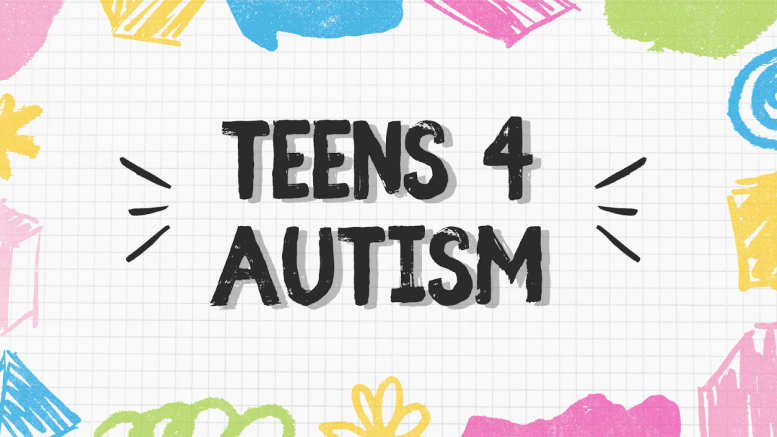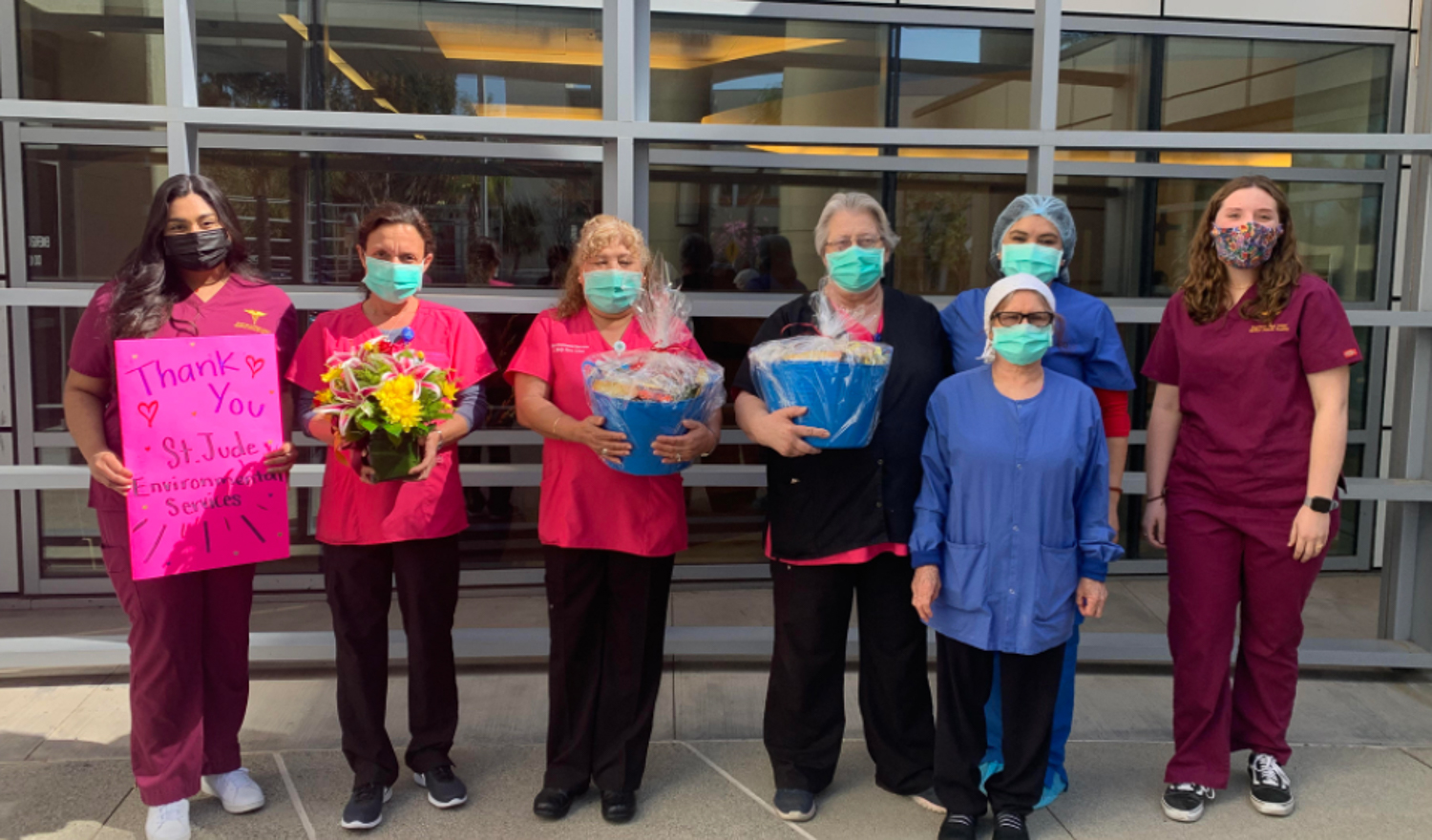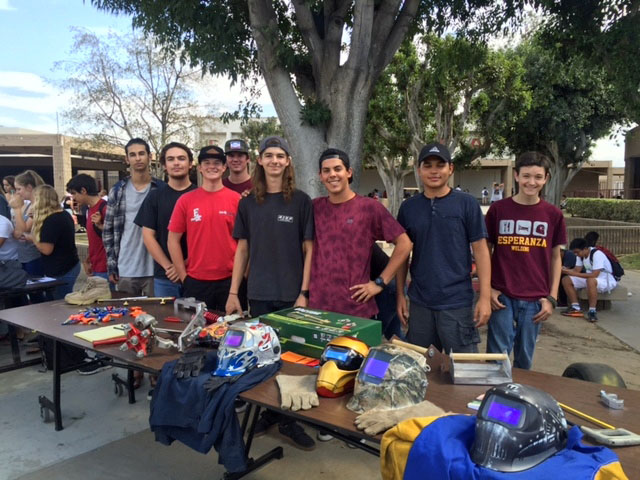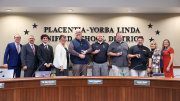Esperanza High School seniors—Jackie Chai, Lexi Gomez, and Mariah Hernandez—who are a part of the school’s Health Occupation Students of America (HOSA) program, recently started a community awareness project called Teens 4 Autism. HOSA is a global student-led organization that prepares future health professionals to empower the healthcare industry and enhance the delivery of quality healthcare to all people. In the coming weeks, the three students will be competing at HOSA’s State Leadership Conference, and they will present about their efforts with Teens 4 Autism and the topic of Autism Spectrum Disorder. Through their outreach, the students hope to educate about those who would be deemed neurotypical and eliminate ignorance, starting right here with the Placentia-Yorba Linda community. Below is the students’ original article.
* * * * *
Did you know that autism was thought to be linked to schizophrenia and one’s inability to create an identity separate from their mother? According to the Third Edition of the Diagnostic and Statistical Manual of Mental Disorders (DSM-III) released in 1980, clinicians and researchers looked to this book for definitions of mental disorders. Given this information, it can be concluded that Autism or Autism Spectrum Disorder (ASD) has had a history of creating shame and isolation for those diagnosed. This stigma negatively impacts the quality of life for those living with ASD. Oftentimes, they are the victims of ignorance, discrimination, and prejudice.
This problem at hand is the very premise of our outreach. We are Jackie Chai, Lexi Gomez, and Mariah Hernandez or Teens 4 Autism, seniors in Esperanza High School’s HOSA chapter. HOSA is an acronym for Health Occupation Students of America: Future Health Professionals, a global student-led organization that prepares future health professionals to empower the healthcare industry and enhance the delivery of quality healthcare to all people. We are a Cal-HOSA community awareness project that aims to promote education about Autism Spectrum Disorder in order to eliminate ignorance. Through our outreach, we hope to compete at the State Leadership Conference and make a positive impact in the lives of our community. However, in order to empower others to enforce kindness and understanding, it is important to know exactly what Autism Spectrum Disorder is.
According to Mayo Clinic, Autism Spectrum Disorder (ASD) is a condition related to brain development that impacts how a person perceives and socializes with others, causing problems in social interaction and communication. ASD primarily affects the nervous system, seen in structure and function abnormalities. More specifically, the limbic system within the nervous system. The limbic system is the part of the brain involved in our behavioral and emotional responses, regulating emotion and memory while also dealing with sexual simulation and learning. Components of this system include the amygdala, a major processing center for emotions, the cerebellum, responsible for muscle control, including balance and movement, and lastly the hippocampus, a place where short-term memories are stored and transferred to long-term storage in our brains.
Given the term “spectrum” in Autism Spectrum Disorder, symptoms and severity range widely depending on the person diagnosed. Signs and symptoms can be classified into two main categories: social communication/interaction and patterns of behavior. This includes but is not limited to avoiding or inability to keep eye contact, unusual mood or emotional responses, and delayed cognitive learning. Moreover, patterns of behavior can also look like repetition of words or phrases over and over, flapping of hands, rocking one’s body, spinning oneself in circles, and unusual reactions to the way things sound, smell, taste, look, or feel. It is important to note that symptoms are different for every individual diagnosed.
There is no distinct cause of ASD, affecting anyone of all genders, races, and nationalities. Though, it should be taken into account that certain risk factors increase the likelihood of a child having Autism. These are sex, family history, and ethnicity. According to Massachusetts General Hospital, boys are over five times more likely to be diagnosed with Autism, with girls more then often going undiagnosed or misdiagnosed of other conditions. Furthermore, Mayo Clinic concurs that families who have one child with Autism Spectrum Disorder have an increased risk of having another child with the disorder. At 3.3% of the population, individuals of Asian or Pacific Islander descent hold the highest chances of their children being diagnosed with Autism while people of White descent pose the least at 2.4%.
Typically, Autism Spectrum Disorder is diagnosed before the age of two, but can be diagnosed at any stage of life (National Institute of Mental Health). Treatment should not pose Autism as a disease requiring a “cure”, but rather aid that helps lessen symptoms that negatively impact the livelihood of those affected. This includes therapies like common anger management or applied behavior analysis and antipsychotic medications like risperdal or adderall.
But what effect does Autism have on the lives of neurotypical individuals or people with typical neurological development like ourselves? We have a personal connection through Jackie’s older brother JJ, who was diagnosed with Autism at the age of three. He currently attends Venture Academy, a post-secondary program that assists young adults ages 18-22 with disabilities as they transition into adult life within PYLUSD. Growing up, JJ often faced various forms of bullying such as but not limited to purposeful exclusion at school and name calling all because he was deemed “odd”. It is important to break the stigma of people diagnosed with autism as being incapable. JJ is high-functioning and finds a passion in art, making his own movies and enjoys coloring. Venture Academy has really helped him grow as a person, further developing his social and vital life skills.
Given the information above, the power of eliminating and promoting a positive environment between neurotypical and neurodivergent individuals is in your hands! The most important way to raise awareness about Autism Spectrum Disorder is through education which forges a deeper connection via knowledge. Using this, have empathy for the experiences of those diagnosed with Autism and evoke meaningful friendships that help alleviate feelings of isolation. In fact, look for programs like Unified Sports at Esperanza High School. This integrated sports program promotes friendship between special education students and college prep students over a love for sports.






Be the first to comment on "Esperanza HOSA Students Author Article to Spread Autism Awareness Ahead of State Leadership Conference"